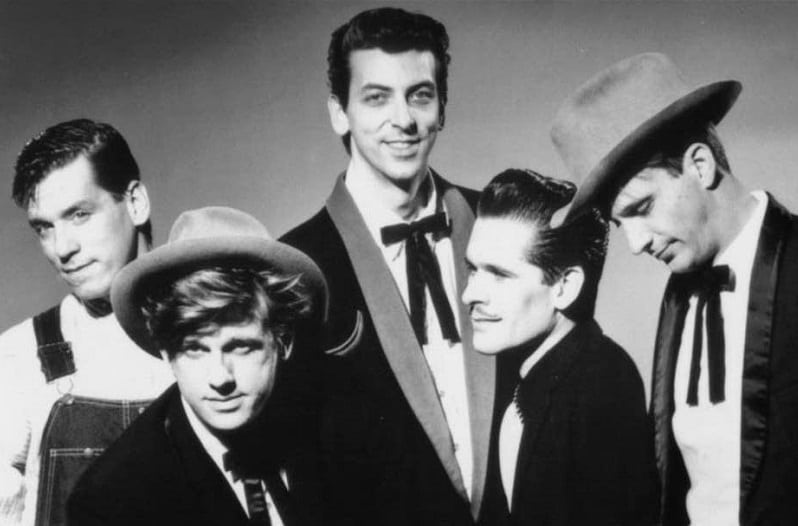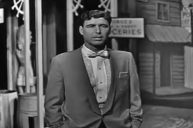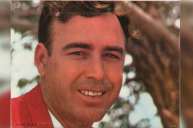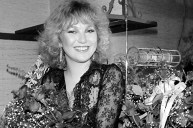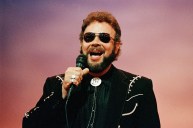Back when cross-genre CD sales were through the roof, BR549 (originally spelled BR5-49, in honor of Junior Samples' phone number), went from playing for tips at Robert's Western World to a spot on the Arista Nashville roster without changing their throwback sound. In true bar band form, the group's first single off its 1996 major label debut was a cover of Moon Mullican's "Cherokee Boogie"--an often-covered proto-rockabilly classic with lyrics that haven't aged well. A music video accompanied the unlikely top 50 hit, and it shows how the band's dedication to the classics brought together Lower Broadway regulars, rougher customers, hipsters and Music Row executives.
Videos by Wide Open Country
Since the video speaks for itself, let's unravel the story behind those catchy yet controversial lyrics.
Proto-Rockabilly
https://www.youtube.com/watch?v=0CadtHEJgFE
Pianist Moon Mullican, a versatile side man turned band leader, first recorded the song in 1950. Per Bill C. Malone's seminal Country Music U.S.A., Second Revised Edition (2002), it's one of several "boogies" that brought upbeat, cosmopolitan dance vibes to "hillbilly" music during its post-war commercial surge. In its time, the upbeat, boogie-woogie dance floor filler impressed Hank Williams enough that he learned it--and allegedly some of the lyrics of "Jambalaya"--from Mullican for his live radio sets.
In 1959, Johnny Horton kept the song on country fans' minds by recording a version for his album The Spectacular Johnny Horton. From there, the song ended up being in the covers repertoire of rockabilly bands and country revivalists for decades to come.
Co-Written By Chief William Redbird
Mullican shares co-writing credits for "Cherokee Boogie" with Chief William Redbird. A quick Google search found nothing about his collaborator. Considering the times, did this mean that the Chief was one of Mullican's side men in redface?
An initially fruitless search for the mysterious William Redbird ended with a book about country artists with ties to Detroit. An entire chapter of Craig Maki and William Cady's Detroit Country Music: Mountaineers, Cowboys and Rockabillies follows Redbird's journey from an honorary Cherokee chief to a Midwestern radio star.
Per the book's sources, Mullican learned the song, written by Redbird to honor one of his mentors, during a stop in Detroit. Allegedly, Redbird had the song in his set for several years before Mullican was granted co-writer credit in exchange for recording the sure-fire hit.
An Ideal Single At The Time
Lines about "tom-tom beatin" Native Americans with names like "Standing Bear" and working and dancing relations with the "white man" elicit one of two strong responses nowadays--regardless of whether the half-Cherokee Redbird actually penned the song. Some probably get angry that such lyrics would raise a fuss now, while others are probably glad that their favorite songwriters have to come up with choruses way less cartoonish than "Hey-ho-a-lina wup-wup a-wittena-yea!"
Who's got a stronger gripe is a whole different discussion. For the sake of this article, let's agree that while Mullican and Redbird's "Cherokee Boogie" lyrics seem dated now, they probably seemed par for the course just a few years after Tim McGraw's politically incorrect song "Indian Outlaw"--not that the "different times" argument disarms either side of the debate. Still, "Now hey-ho" got a wide range of people dancing, as the video depicts, with the rest serving as a nostalgic "Indian Boogie" that points back to the over-the-top alt-history shown in Western films.
A Throwback Sound
When fans discover BR549, they find more than a cover song with lyrics worth debating. Their retro-forward sound and look also incorporated original material in the style of early country, Western swing and rockabilly. If you like the classics, they honor all thy music beyond Chief Redbird's most famous song. Still, the single and its music video capture the throwback appeal of the band for first-time callers and long-time listeners.
